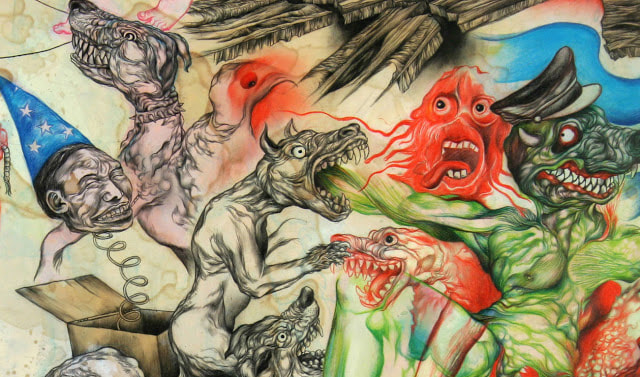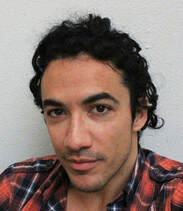|
Rinconcito is a special little corner in Somos en escrito for short writings: a single poem, a short story, a memoir, flash fiction, and the like. On Reincarnation by Michele Shaul Were I to subscribe to reincarnation I would call him Hugo Augusto Anastasio Fidel Men interested in their own aggrandizement In the guise of stabilizing the whole Contemporaries abound that offer parallel Egos and interests They connected, Bonding in their embodiment of self-interest, exploitation, and greed But even those bonds were not enough to fulfill his insatiable needs, to maintain his self-absorption, To bolster his insecurities His counterparts quickly fell short in worshipping at his shrine Escalation of efforts to uplift his need pushed ahead No concern for consequences No shame at deception Yet soon, God willing, Our own defective incarnation will disperse just as the edge of twilight slides into obscurity.  Michele Shaul was born in Oakland, CA to a Kansas farm boy and a Key West girl. Her mother’s maternal family immigrated to Havana, Cuba and subsequently Key West, FL in the 1800s. Her paternal grandfather was born in Havana and moved to Key West where he married her grandmother and managed the local tobacco factory until his death. Michele currently lives with her family in Charlotte, NC where she is the Director of the Center for Latino Studies and a professor of Spanish at Queens University of Charlotte, formerly serving as Chair of the World Languages Department for 22 years. She is co-founder and co-editor of the e-journal Label Me Latina/o and is involved in several arts and social outreach projects that use art as a vehicle to address the topics of diversity and tolerance. Her writing has been predominantly academic in orientation although in recent years she has had the opportunity to write more creative pieces. Her critical essays are published in a number of journals and collections. Her translation of the novel The Suitcases was published in 2005 and her poem “Vida cercada” appeared in Minerva (5 (2), septiembre-diciembre 2005. Mellen Press published her book A Survey of the Novels of Ana Castillo: A Contemporary Mexican American Writer (2016). Her short story “Mixed Reviews/Reseñas mixtas” has been selected for inclusion in Nos pasamos de la raya/We Crossed the Line Vol. 2 (Slough Press, 2021 anticipated). The collection of essays Not White/Straight/Male/Healthy Enough: Being “Other” in the Academy coedited with Michael Moreno and Kathryn Quinn-Sánchez was published by Cambridge Scholars Publishing (2018). Her essay “We Met Pregnant at the Snack Bar” is included as part of the collection. The book Contemporary U.S. Latinx Literature in Spanish (Palgrave, 2018) was co-edited with Kathryn Quinn-Sánchez and Amrita Das. Teatro latino: Nuevas obras de los Estados Unidos, coedited with Trevor Boffone, Amrita Das, and Kathryn Quinn-Sanchez, was published by La Casita Grande (2019). The collection of essays Whiteness in the Workplace edited with Michael Moreno and Kathryn Quinn-Sánchez was published by Cambridge Scholars Publishing (2020). Her translation in partnership with Erin Debell and Liliana Wendorff of Miguel Orosa’s play Brave Women and Laughter (Quite a long night’s journey throughout Latin America) was published by Proyecto Ñaque Editorial (2020) and her translation of Enrique Weichs’ Anteayeres (Before Yesterday), also teaming with Erin Debell, is currently seeking a publisher. Michele directs the Latino Studies Project which is a student/faculty research project that seeks to document the story of the Latino population in the Charlotte region. She is the recipient of the Queens’ 2016 Hunter-Hamilton Love of Teaching Award.
0 Comments
Rinconcito is a special little corner in Somos en escrito for short writings: a single poem, a short story, a memoir, flash fiction, and the like. El Bronx, Bogotá D.C. |
Archives
July 2024
Categories
All
|
Donate and Make Literature Happen
is published by the Somos En Escrito Literary Foundation,
a 501 (c) (3) non-profit, tax-exempt corporation. EIN 81-3162209






 RSS Feed
RSS Feed